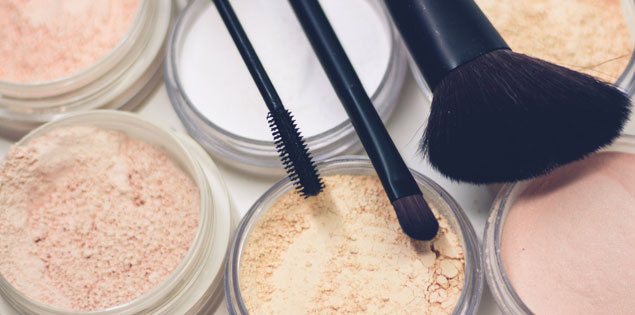In September 2021, aconsortium consisting of L’Oréal, Henkel, LVMH, Unilever, and Natura & Co announced the launch of a collaboration to develop a new environment impact assessment and scoring system, created specifically for the cosmetic industry. The focus of the consortium is to provide brand-agnostic, transparent, comparable, environmental impact information on the basis of the available science-based information. This would help improve data of the environmental impact of the products, especially the formula, packaging, and usage of the products, and enable consumers to make more sustainable choices.
The peculiarity of this scoring system lies in how it seeks to ensure a robust and a scientific approach. It is based on a common method for measuring environmental impact of these products, backed by the principles of “Product Environmental Footprint”. The scoring system is guided by a database of the environmental impacts of all the standard ingredients and raw materials that are usually used in the formula and the packaging of the product. Particularly, this is a harmonised system that gives products scores from A to E, that would help consumer compare the products.
This system is an effort to address the infamous environmental practices rampant in the beauty industry- most products are not entirely used before being disposed, eventually ending up in landfills. The volatile organic compounds (VOCs) in hairsprays, fragrances contribute significantly to smog and air pollution. A key ingredient used in 70% of cosmetics, palm oil, has caused 5% of tropical deforestation. Each year, the use of beauty and personal care products results in 120 billion units of packaging. Similarly, mica, a mineral used to add shimmer in makeup products is sourced from regions of Bihar and Jharkhand in India where child labour is prevalent. Children as young as five years old, are employed in the mines which are highly prone to collapsing, leaving them at the risk of serious injury, paralysis, or even death. On a good day, the children are compensated with less than a dollar for a day’s work.
With the growing awareness of the ill-effects of the beauty industry, a rising demand for sustainable beauty products is observed on the consumer side. A research conducted by Wella’s weDo/Professional, shows that 54% of consumers consider sustainability as a key factor when they are buying beauty, hair or skin care products. Similarly, a research conducted by NYU Stern’s Center for Sustainable Business showed that 50% of the growth in consumer packaged goods (CPG) from 2013-2018, came from sustainability marketed products.
The increasing demand on the consumer side is coupled with a sharp rise in investments and acquisition of sustainable cosmetic companies. North-America based The Honest Company, a clean and sustainable beauty and baby care brand, was listed on NASDAQ in 2021 and has raised US $503 million till date. Additionally, a global investment firm, the Carlyle Group acquired a majority stake in BeautyCounter, a leader in clean skincare and cosmetics, raising its valuation to US $1 billion. In a similar case, Bain Capital acquired a majority of stake in Hand in Hand, a natural, vegan, and palm oil free brand.
Despite the rapid uptake of sustainable beauty products, there still is significant work to be done. For instance, the US Food and Drug Administration (FDA) does not define or regulate the term, “organic”, leaving ample room for greenwashing. This warrants for urgent clarity from the regulator’s end.
Secondly, these regulations could be complemented with non-financial disclosures from the companies. A good starting point, these disclosures would help understand the companies’ approach to managing climate impacts created along the value chain using frameworks such as the Taskforce on Climate-related Financial Disclosures’ (TCFD) recommendations. Industry leaders such as L’Oréal, Unilever, and Estee Lauder Companies have expressed their support for TCFD and adopted its recommendations. Under the TCFD’s “Metrics and Targets” recommendation, organisations would need to disclose the scope 1, 2, and if appropriate, scope 3 GHG emissions. The framework would also help understand the management’s role in assessing and managing climate-related risks and opportunities for the business.
Third, the cosmetic industry could adopt block-chain based technologies to track the source of ingredients. This would enable consumers and investors to have visibility on every part of the supply chain, thus enhancing transparency. A step in the direction is the Paris-based NGO, Responsible Mica Initiative’s collaboration with the blockchain based traceability platform, Tilkal, to launch a tool to trace the mica supply chain. The system efficiently captures information of the mica supply chain in a decentralised network, while reducing complexity and offering greater flexibility and auditability.
Given the beauty industry’s impact on the environment, climate action is urgently required at an unprecedented scale, and regulations from the state, climate-related financial disclosures, and adopting relevant technology is the way forward.
References:
- https://www.henkel.com/press-and-media/press-releases-and-kits/2021-09-20-henkel-l-or%C3%A9al-lvmh-natura-co-and-unilever-invite-the-cosmetics-sector-to-co-design-a-voluntary-environmental-impact-assessment-and-scoring-system-for-cosmetic-products-1335956
- https://www.downtoearth.org.in/blog/environment/smell-good-breathe-bad-how-scented-products-add-to-air-pollution-74501
- https://www.forbes.com/sites/lucysherriff/2019/09/17/the-minimalist-beauty-company-tackling-the-industrys-waste-problem/?sh=5abbeb3d4326
- https://www.refinery29.com/en-us/2019/05/229746/mica-in-makeup-mining-child-labor-india-controversy
- https://www.stern.nyu.edu/experience-stern/news-events/nyu-stern-center-sustainable-business-and-iri-launch-new-sustainable-share-index#:~:text=The%20research%20conducted%20by%20Stern’s,in%20dollar%20sales%20in%202018.
- https://www.cosmeticsbusiness.com/news/article_page/64_of_consumers_find_it_difficult_to_buy_sustainable_beauty_products/177154
- https://www.honest.com/
- https://www.crunchbase.com/organization/the-honest-company
- https://www.beautycounter.com/
- https://www.carlyle.com/media-room/news-release-archive/beautycounter-industry-leading-clean-beauty-brand-partners-carlyle
- https://www.glossy.co/beauty/beautycounter-is-now-a-1-billion-brand-following-carlyle-group-investment/#:~:text=On%20Tuesday%2C%20private%20equity%20firm,valuing%20it%20at%20%241%20billion.
- https://www.baincapital.com/news/hand-hand-secures-growth-investment-bain-capital-double-impact
- https://www.handinhandsoap.com/
- https://www.fda.gov/cosmetics/cosmetics-labeling-claims/organic-cosmetics#:~:text=Does%20FDA%20have%20a%20definition%20for%20the%20term%20%E2%80%9Corganic%E2%80%9D%3F,FDA%20enforces%20under%20their%20authority.
- https://www.spglobal.com/_assets/documents/ratings/research/100848404.pdf
- https://www.unilever.com/news/news-search/2017/unilever-commits-to-support-recommendations-of-task-force-on-climate-related-financial-disclosures/
- https://media.elcompanies.com/files/e/estee-lauder-companies/universal/our-commitments/2021-ss-report/elc-socialimpact-sustainability-report-fy21.pdf
- https://responsible-mica-initiative.com/
- https://responsible-mica-initiative.com/the-responsible-mica-initiative-tilkal-launching-first-multi-stakeholder-blockchain-based-solution-to-improve-traceability-across-mica-supply-chains
- https://www.tilkal.com/

